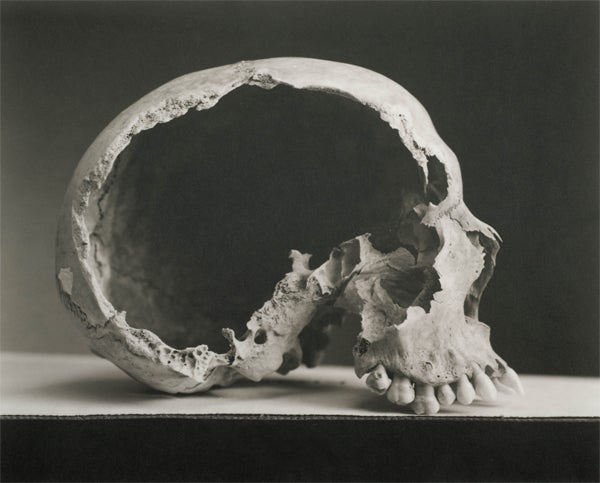Photography exhibit on loan from Denver Art Museum coming to Fulginiti Pavilion

The Art Gallery at the Fulginiti Pavilion for Bioethics and Humanities at the University of Colorado Anschutz Medical Campus in March will be home to a collection of photographs from internationally recognized artist Andrea Modica in connection with Denver’s Month of Photography.
Modica’s “Human Being” is the result of an unusual discovery in 1993 of 100 skeletons buried a century ago on the grounds of the Colorado Mental Health Institute in Pueblo. “Human Being” is on loan from the Denver Art Museum from March 5 to May 23.
“Photographs for this exhibit were generously loaned by the Denver Art Museum to the Center for Bioethics and Humanities,” said Simon Zalkind, Curator for the Art Gallery at the Fulginiti Pavilion at CU Anschutz. “We hope that this exhibit will encourage a conversation about historical and aesthetic dimensions of the photograph as evidence and elegy, within the context of Modica’s ‘Human Being’ – a tragic story of the forgotten lives and the deaths of people who lived in Colorado over a century ago.”
After reading a headline “Hundreds of Skeletons Found at State Hospital” in the local newspaper, Modica was granted permission to photograph them. With help from Colorado College professor and anthropologist Michael Hoffman who provided both historical and descriptive context for the photographs, Modica published a book in under the same title, resulting in this exhibit.
“The ‘Human Being’ exhibit reinforces the mission of the Art Gallery – to bring the work of major artists to the community in order to explore the essential questions about the human experience, who we are and how we care for one another,” states Therese Jones, Director of the Arts and Humanities in Healthcare Program at the Center for Bioethics and Humanities at CU Anschutz. “Our hope is that it will engage health professionals and the greater community in a dialogue about the ethical issues in contemporary health care, and piece together the story of what happened in our own history – right here in Colorado.”
The reasons for a secret burial in a mass grave remain a mystery. The individuals buried at the facility were those whose bodies had gone unclaimed and their burials unrecorded. However, the study of the skeletons reveals that most of them were men and there are traces of illnesses and damage which help reconstruct a form of personal history.
The opening on March 5 will include a reception from 4 p.m. to 7 p.m. featuring a conversation titled “Unearthed: The Photograph as Evidence and Elegy,” at 6 p.m. with Eric Paddock, curator of photography at the Denver Art Museum, and Simon Zalkind, curator of exhibitions at the Fulginiti Pavilion for Bioethics and Humanities at the University of Colorado Anschutz.
“Human Being” is the 11th exhibit to open in the Art Gallery at the Fulginiti Pavilion.
For more information on the exhibit or the Art Gallery at the Fulginiti Pavilion for Bioethics and Humanities, please call Ryann Nickerson at 720-726-0378.

